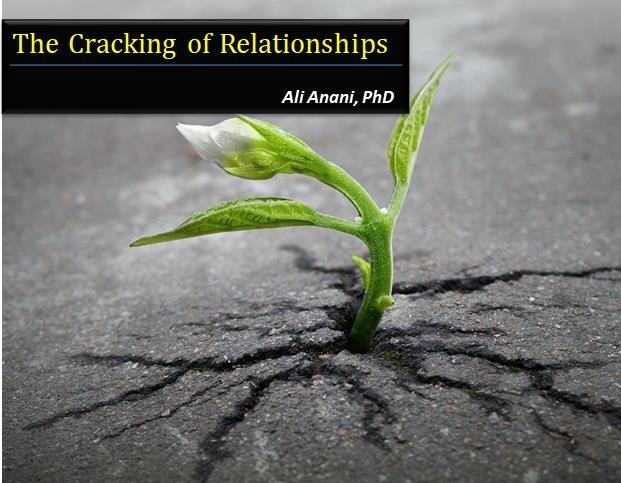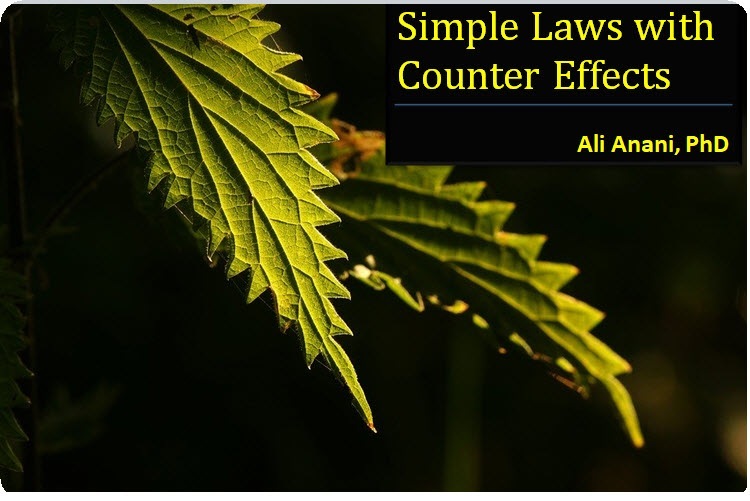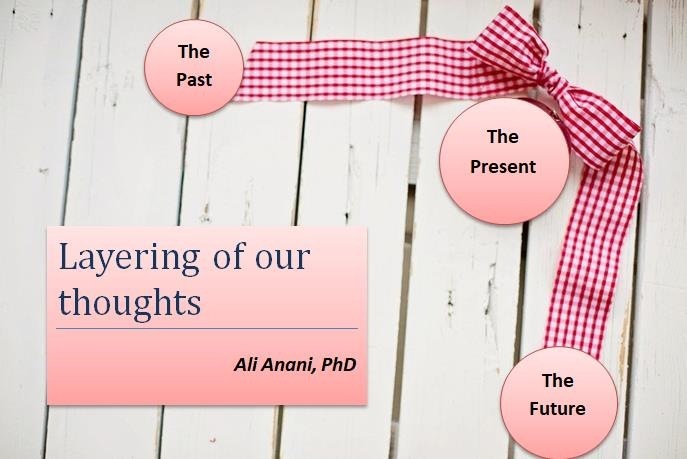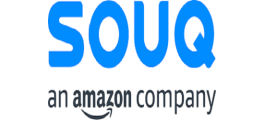Nature and Us on the Edge of Chaos

Nature doesn’t trust us anymore. We have depleted it of many of its resources without having the capacity to understand the effect of our behaviors on the balance of nature. Depletion of fish resources, the emergence of pets and the permanent migration of birds to other parts of the world are signs of our actions.
It seems to me that the root cause of our actions is simply greed. The greed we observe in the stock markets is responsible for the distortion of stock markets and their sudden and unpredictable behaviors. We make these markets behave in unpredictable ways and we pay heavily for that. It is our imbalance that leads to the imbalance of nature. Not only we become chaotic in our behaviors, but may also lead to the chaotic behavior of nature. The signs are many such as the greenhouse effect, the extinction of some species, the pollution of our waters and the examples are too many to count them all.
Chaos leads to chaos till a system disrupts or self-organize. Self-organizing requires trust. It is not enough for two people to be close to connect and build healthy relationship if they mistrust each other. Fear of closeness shall prevail and the two people shall avoid talking to each other, exchange ideas or be interested in knowing each other. Nature is the same. It doesn’t trust us and has been fearful in building healthy relations with us. We have destroyed its interconnectedness.
Disruption may lead to the emergence of new evils. One known example is the rapid increase in slug and snail numbers in few countries. Another example is the campaign in China that aimed at eradicating four pests in China in 1958. These pests were mosquitoes, flies, rats, and sparrows. Our ignorance of understanding that we live in an interconnected world led to disastrous results. For example, the extermination of sparrows led to the explosion of locusts that ruined crops. Our short-sightedness is responsible for this behavior for two reasons. We know about the fragility that interconnectedness may create, but we still repeat the same mistake. But there is a wider lesson here. It is the distortion of seeing the harm without considering the benefit. People blindness lead people to see the harm of sparrows, but not their benefits. We tend to exaggerate harm as it is instantaneous, and subdue the benefits because of their delayed effects.
This distortion of seeing the harms of now and not the benefits of tomorrow has distanced us from nature and from each other.
Ali Anani
Disruption may lead to the emergence of new evils- cascading evils. In the sparrows’ example above the invasion of locusts lead to less crops and more famine. A small even today may grow up tomorrow because evils have their networks. Evils are interconnected and one evil leads to more evils tomorrow.
When humans fail to interconnect healthily, they create unforeseen evils that may grow out of proportion tomorrow. These evils infiltrate to nature and disrupts it. The benefits of rapid growth have blinded us from seeing the evils of distorting the balance and the interconnectedness of nature. This fact extends to human relation as the evil of exploiting humans as resources and depleting them of their energies, appetite to work and so disengaging them from work. The evil of exploiting nature may easily become a tendency to exploiting people. We pile evils on evils and the work environment becomes suffocating.
Can we self-organize to combat these evils when we lose the trust between us? We need to self-reflect on our actions before any real hope emerges.
مقالات من Ali Anani
عرض المدونة
We build relations with friend, customers, with family members and with the world and with even our ...

If your care for your family life, performance at work and healthy living then this post may interes ...

The Golden Circle of asking questions is well-known. This circle consists of asking three basic ques ...
المتخصصون ذوو الصلة
قد تكون مهتمًا بهذه الوظائف
-

Senior Registration Assistant
منذ يومين
United Nations Office for Project Services Amman, الأردنAssist in the implementation of registration strategies and methodologies for POC. · Conduct registration interviews when required in accordance with registration standards and guidance. · Provide counselling to, and responds to queries from, asylum seekers and refugees regarding ...
-
Local Health Systems Sustainability Amman, الأردنThe objectives of this consultancy are to: · Review USAID's CPD mapping and private sector analysis to identify private sector providers with capabilities aligned to the CPD Instructions. · Draft a private sector engagement strategy with recommendations from USAID's private secto ...
-

SDE Intern
منذ ساعة
Amazon Amman, الأردن· Collaborate with experienced cross-disciplinary Amazonians to conceive, design, and bring to market innovative devices and services · Design and build innovative technologies in a large distributed computing environment and help lead fundamental changes in the industry · Creat ...
التعليقات
Ali Anani
منذ 3 سنوات #37
Thank you John Rylance Sometimes, we need to remind ourselves of the basics of life.
John Rylance
منذ 3 سنوات #36
Ali Anani
منذ 5 سنوات #35
This is self-challenging to "we must also accept the responsibility to correct what we started as natural". People tend to blame circumstances and other people for their non-intended acts. It takes courage to correct for them if they are to stop the cascading effect of Murphy's Law.
Harvey Lloyd
منذ 5 سنوات #34
Realizing the law of unintended consequences and murphy's law are cousins in reality is the first step. The second step is to realize that if they do exist as a matter of nature then we must also accept the responsibility to correct what we started as natural. But it is difficult to be disruptive if we also carry the responsibility of humanity also. By letting go of unintended consequences we can be disruptive in the marketplace. We can't know the future but we can be responsible for it when we meet the challenges.
Ali Anani
منذ 5 سنوات #33
I must admit that your wealth of knowledge is staggering. I love the way you link drama with your explanations. The sci-fi is an example of what I mean. You baffled me with this comment for it has high quality, deep reasoning and unexpected surprise. You mentioned "The law of unintended consequences". I wish you were nearby to show you my hand-written notes. A very recent one reads consider writing a buzz about nondirectional intentions. I hear people say "it was not my intention to do so". Who is to blame? Maybe the emerging thoughts and results were never intended by the initiator. Your comment prompts me to write this buzz soon.
Harvey Lloyd
منذ 5 سنوات #32
I recently watched a sci-fi series where a scientists created a time machine and used it to enhance his race. Through eliminating one thing in history he thought hindered his own. Another race. Everything went well for a few months. Then a dreaded disease came to his planet and home. It wiped out his entire family and his own existence. Turned out the race he destroyed brought an antibody into their race that kept the viruses at bay. The law of unintended consequences. He spent hundreds of years redoing, destroying and eliminating history segments of people. He got to 99% back to where it was but always his own life and family never showed up. So it is when we begin to tinker with policy and national/international issues. One move to the left or right will have impact both negative and/or positive, never perfection. Unfortunately various historical and current practices are creating non participants in the economic process. People in the hidden economy, and those who are working poor are not participating in the socioeconomic world being created. We should be alarmed. But we should not look to who is at fault. Taking away greed will not solve these issues. Being in perfect balance with nature will not eliminate these issues. It will be a shadow concept of "things in common" that draw us back from the direction of identity groups. Great discussion as always.
Ali Anani
منذ 5 سنوات #31
Reading my posts alone will lose wealth of value without the integral comments such as yours my friend. A writer gets his main energy from comments that enrich him as well as the readers. To this I acknowledge your great contributions. I published a e-book today on both slideshare and LinkedIn. https://www.slideshare.net/hudali15/fish-pond-metaphor-complexity-of-management and https://www.linkedin.com/feed/update/urn:li:activity:6523465310023012352/?commentUrn=urn%3Ali%3Acomment%3A(activity%3A6523465310023012352%2C6523588507921981440) The book explains the complexity of management and you are so correct in your very reflective comment.
Ali Anani
منذ 5 سنوات #30
I am taken by the quality of your comment. You nailed the issues perfectly well I am absorbing your supper-quality thought "The solution has to cut across culture and all socioeconomic structures. Nature and humans across all domains must coexist and solutions should be considered in these veins". I am speechless and fully in agreement.
Harvey Lloyd
منذ 5 سنوات #29
Thank you for seeing the challenge in thinking as a broadening of the discussion. Your posts bring up components of a matrix of issues. Your thoughts open segways into the larger discussions we need more of in our humanity. They are complex issues. My thought is to display the complexity and that no one thing is going to repair several decades of choices and there unintended consequences. My frustration if you will is how politicians and media drive very narrow focused talking points. While the issue has very broad implications. If this frustration leaked through without description my apologies. Your posts bring provocative issues before a group who wish to explore beyond the media. For this i thank you.
Harvey Lloyd
منذ 5 سنوات #28
Great questions and again we are back to perspective. Many conversations along these lines are NIMBY (Not in my backyard). I am for some form of behavioral change in others but when it comes to my own i don't want to. The solution has to cut across culture and all socioeconomic structures. Nature and humans across all domains must coexist and solutions should be considered in these veins. When we focus upon the outcome only, which may be a great outcome, without considering the impact across domains we lose the original goal, humanities sustainability. Climate change, carbon based vs renewables are having a devastating impact on our less fortunate humans. Attacking the socially labeled greedy is also having impact that most don't see. Makes for great TV but in action the subtle effects are less visible. A large segment of our economy is not participating. Is it due to climate change, greed, missing opportunity or generational structures that we thought would help. I have difficulty that a problem that started in the 1930's and the generated behaviours, can be fixed through eliminating greed alone. This is a matrix whereby we must unwind the components to see how we are impacting humanity. Attacking one or two components seems a bit challenging when we consider the 80+ years of changes in social, political and economic policies.
Ali Anani
منذ 5 سنوات #27
Great points and they leave me thinking even more than before. But one question floats in my mind. This is when we have choice why don't we change behavior to the better? We may not have the knowledge to exploit natural and green energy, but we know now. We have a less risky choice for the environment and us as well. What are the criteria that we select upon> Does fast profit one of them? If so, is this greed or not?
Ali Anani
منذ 5 سنوات #26
Excellent comment and I enjoyed it immensely. It adds to the challenges that you offered. While writing the previous line I paused for a second asking a question. Does your excellent line "our perspective changes when it is within chaos definitions verses the definitions we display within our orderly children" extend to most of our definitions, including the definition of challenge? The perspective I have is that a challenge from Harvey Lloyd is an opportunity. Others might view same challenge as testing or even nerve-breaking if not an evil act. The chaos of definitions includes so many of our definitions such as strategy because we may offer an explanation based on our own perspective. I believe this issue hasn't been covered in depth in spite of its importance. So, I wonder how to answer your question "And at the same time, see others as taking more advantage in the perceptions of greed. This seems a dichotomy to me. Which is true?" Thank you again for the sweet challenges you put me in
Harvey Lloyd
منذ 5 سنوات #25
I don't disagree with the energy we select has impacts on environment cost and civilization. What i do disagree with is the comparison of solar over other forms as some holy grail of civilization. Eiather in stewardship or desimation. The real discussion is around behaviour. Maybe foolishly, we entered the carbon based energy civilization we find ourselves. Interestingly we could consider the efficiency of carbon based fuels supports the 7+ billion people who live on earth. If we were to take it away how many would need to perish to be supported by alternate forms? From food to jobs to families the amount of energy is what has driven our society to worldly success. Some cultures would have to be sacrificed if we remove the efficiencies of carbon based fuels. Our own EPA efforts here in the USA has placed undue burden on the lower middle class and working poor by raising the cost of transportation. From fuel taxes, cash for clunkers (Older used cars purchased by the government to lower emissions.), CAFE standards that require car manufacturers to raise technology and cost in engines to reduce emissions and many other Climate change driven changes are having unintended consequences. The hidden costs of transportation, are increasing operation costs for those who can least afford the hidden increases. We in our zealousness of climate change are declaring war against a socioeconomic culture that we blame greed. This is merely one component of a complex discussion.
Harvey Lloyd
منذ 5 سنوات #24
When we rest within our own success and look at the corporation that utilizes widows and orphans to extract a profit i could agree. But if we were to inverse our thinking and see the widow and the orphan from their own position we might see this as opportunity. Opportunity for them to gain advantage in a marketplace through their own efforts and learning. If we look at our own children and the many advantages we wished on them through our guidance and support, we would see the world as an opportunity. When it is not our own children and we see certain advantages one may have over another, it is greed. Do not our children have advantage over others due to our inputs and support? Are my children greedy or taking advantage of opportunity parents set them up to take advantage? I bring these questions forward only to show that our perspective changes when it is within chaos definitions verses the definitions we display within our orderly children. Should this be true? Is it OK to see my offspring as prepared within an opportunity that all can take advantage; And at the same time, see others as taking more advantage in the perceptions of greed. This seems a dichotomy to me. Which is true?
Ali Anani
منذ 5 سنوات #23
Thank you my friend and your buzz is a jewel indeed. What a lovely tribute from you!
David Navarro López
منذ 5 سنوات #22
my tribute to you: https://www.bebee.com/producer/@david-navarro-lopez/the-tribal-war-that-killed-humankind
Ali Anani
منذ 5 سنوات #21
If my buzz is a Pearl of high value'as you said dear friend David Navarro L\u00f3pez" then your comment is of diamond of highest purity. This is because you bring to the discussions an exceedingly important point. That is the giver is stronger than the receiver, regardless who is the giver or the receiver. It is a general principle. The earth gives us its resources and we misuse them and even send back to the earth our polluted products. As you said, nature is patient, but once it reaches its tipping point it erupts in volcanoes, earthquakes and floods and the revenge can be devastating. The same with the lion and mouse as you stated in your superb comment. You give me so much to digest. You are the giver and I am the receiver, a role that Harvey Lloyd plays with me. All I hope is that both of you don't lose their patience with me.
David Navarro López
منذ 5 سنوات #20
Ali Anani
منذ 5 سنوات #19
If I claim that I have a dominant thoughts on your premises I shall be lying. However; I hope I am not distracting the discussions by referring to this link: https://www.spaceandmotion.com/society/insanity-stupity-collapse-society.htm This is a great website. In one section it refers to solar energy and its potential and that one day of sunshine can give us huge amounts of this energy. I know that this energy is for free; exploiting it is expensive. But we see some ocean species have the ability to utilize up to 60% of this energy because they have the right silica-based shells to do so. We are from using solar energy sufficiently. Nature gives us the energy source and examples where to direct our attempts in utilizing it. Yet our greed goes for hydrocarbons because it is easier exploited and provides more profit. Is greed an emerging one or is it built in us?
Ali Anani
منذ 5 سنوات #18
This is a very interesting point Harvey Lloyd "From this perspective it is the consumer that drives what is deemed greed, not corporations". aSurely, if we as consumers would rise to the challenge we could halt the exploitation of nature. At this late hour I wish to throw a counter idea. Corporations that employ children and needy women to sell at cheap prices and exploit the needy- isn't this a form of corporations' greed? I am just asking and the issue started to puzzle me. Or, is it greed feedback- the consumer feeds the corporations' greed and vice versa? SO many issue are emerging because of your challenging comments dear Harvey.
Ali Anani
منذ 5 سنوات #17
It is 2 a.m here and I can hardly open my eyes dear Lisa Vanderburg knows how to stretch the muscles of my mind.
Harvey Lloyd
منذ 5 سنوات #16
I would guess that at some level yes we could reverse the premise. But i see the cause and effect wielding of the human footprint damage as offering a identity to those who need one. A crusade if you will that comes with almost spiritual underpinnings of identity. Premise 2 is a firm premise. It is when we grow nature beyond its amoral concepts, almost as if it is some living breathing self aware creature that we lose site of our stewardship. Success always looks like greed when we use outcomes as the measure of comparison. Someone failed and someone succeed. The success caused the other failure. Greed. With this thought we can wield the sword of unfair play, while both outcomes were based on the consumer willingness to pay. Throw in some damaged nature and we have a full on crusade that folks can find their identity within. The human crisis is scored in lines along relativism and firm moral law. Relativism is the issue. If we don't stop destroying the planet then we will die, the fix will kill the patient. Which is most relevant? This is a false dichotomy. A contrived media driven problem that doesn't exist and fixing either will not bring us into sustainable living. Sustainable living though is something that transfers existence back to the people. The individual is stronger, not politicians.
Harvey Lloyd
منذ 5 سنوات #15
Again i must say this is a complex topic as we dissect "Greed". Greed as a character trait is something separate from my thoughts here. The perceived corporate greed is what i am discussing. Corporate greed being those who use natural resources to produce a product/service and brings benefit as described by consumers purchasing. What we call corporate greed is merely groups of people who operate within a competitive environment looking for the edge needed for success. It is only when we bring in natural resources, nature and subjective understandings of cause and effect that we introduce the term greed. From this perspective it is the consumer that drives what is deemed greed, not corporations. Companies can not exist without the consumer. The consumer is fundamental and the company is emergent, by extension so is greed. Young people wish to leave the home, procreate and establish independence. They need the various companies to provide the support for this ideal. But with each new birth we will experience the expanding resource need. Greed in this context is emergent. Thank you for your allowing me to present a different context.
Lisa Vanderburg
منذ 5 سنوات #14
Excellent points about hope, Ali \ud83d\udc1d Anani, Brand Ambassador @beBee. I guess the only way to keep hope alive is to forget about that other 99%. Ignorance can be bliss! #16 Superb perspective offering Harvey Lloyd! Our friend Ali will have much to say about this, methinks. I do wonder if your Premise 3 could be reversed; instead of '1&2 are seemingly the cause and effect', could it be that our human crisis has given birth to greed. Premise 2 is a given and static IMHO.
Ali Anani
منذ 5 سنوات #13
Harvey Lloyd- first I warmly welcome you to the discussion as I have missed your great comments lately. I read your comment with great interest. You don't need to be excused dear friend for you stretch the muscles of my mind with your comment. I have to absorb your comment. But one idea that excites me is that greed is an emerging property. I wonder if we extend the same to social jealousy. I am saying this because I can defend the idea that social jealousy is an emerging one. How? well, if I live alone how could I be jealous of anyone? It is when people live nearby and interact that social jealousy emerges. Can I extend the same reasoning to greed? I have no answer, but an idea to challenge us. If I am by myself and catch fish much more than I need to. I cook all the fish and I eat greedily is this behavior emergent, or is it in me? I am still thinking, but I wished first to welcome your challenging thoughts.
Harvey Lloyd
منذ 5 سنوات #12
Ali Anani
منذ 5 سنوات #11
My dear Lisa Vanderburg- you asked me " how much faith do you have in humans?". My answer is simply no matter what little faith I may have it has to be coupled with hope. For if we lose hope we freeze like you wrote " deer-in-the-headlight". This brings a broader issue- can we afford to lose hope when so often few act? For example, how many people read a buzz and then how many get engaged in commenting? A 1% of readers who would comment is simple an above average achievement. Can we afford to stop writing because only 1% would get engaged and even less? It is hope my friend that keeps us trying. At least, we ease our conscious if we do that.
Lisa Vanderburg
منذ 5 سنوات #10
#6 As Joyce \ud83d\udc1d Bowen Brand Ambassador @ beBee says, Mother Nature could dispence with us with a mere shrug. A relatively fast flip of techtonic plates'll do it :) But I think we know what we're doing. We know at some level the harm we wrought. We wait for someone else to start or impose the clean-up, or we are stunned into no action at all. Like deer-in-the-headlight syndrome, we are frozen by what we have witnessed and missed. Tell me, my dear Ali \ud83d\udc1d Anani, Brand Ambassador @beBee has to say about this?
Ali Anani
منذ 5 سنوات #9
This is a challenging question dear Lisa Vanderburg "Does life imitate art or art imitate life?"I will add also of it goes both ways and in equal proportions? I would assume as an initial thought that arts would probably imitate earth because earth has been there for ages. Also, nature teaches us through its movement lots of lessons in making things look functional and artistic. Take the Fibonacci numbers and the Golden Ratio and the beauty resulting from this rule. Nature surely loves art- this I can say safely.
Lisa Vanderburg
منذ 5 سنوات #8
Ali Anani
منذ 5 سنوات #7
Thank you my dear Clau Valerio. A key point in your comment is "by reviewing the beginnings and evolution of the nature-society relationship". A comment on this buzz on LinkedIn that humans need nature, but nature doesn't need us. It is of paramount importance to understand this fact and act accordingly. Much obliged to you and for sharing the buzz as well.
Ali Anani
منذ 5 سنوات #6
Thank you CityVP \ud83d\udc1d Manjit. I watched the trailer and so interested now to match the full film.
CityVP Manjit
منذ 5 سنوات #5
Ali Anani
منذ 5 سنوات #4
Joyce \ud83d\udc1d Bowen Brand Ambassador @ beBee- what you wrote is so true "The Earth does not need us". In spite of this simple fact we insist on harming the earth. I just wonder if humans are intelligent enough to understand simple facts.
Joyce 🐝 Bowen Brand Ambassador @ beBee
منذ 5 سنوات #3
Ali Anani
منذ 5 سنوات #2
Thank you dear Praveen Raj Gullepalli. Your thought "that believes in making hay at night, under artificial light" is very inspirational and deserves expanding into a buzz. Thank you for initiating and enriching the discussions.
Ali Anani
منذ 5 سنوات #1
Dear friend Praveen Raj Gullepalli- I don't dispute the correctness of your comment. However, I add our distortion goes both ways. Yes, we are first-cost minded on the expense of future profits. People tend to magnify costs. The distortion applies to immediate benefits on the expense of future costs as much as they see the evil of today rather than the benefits of tomorrow. For example, we see the evils and shortcomings of employees rather than their expected benefits. The immediate costs of the pests in China made authorities launch a big campaign to get rid of them. This was achieved, but then realized that locusts and other evils invaded them. One other example is the campaign in the UK to "stop the cold air infiltration indoors" to save energy. So many technologies were perfected to reduce the cost of heating. The campaign ended later in reversing it and call for people to allow in cold air. The reason was that preventing air circulation led to the growth of molds indoors. The immediate cost and paying excessive attention to it led to the unexpected findings. So, distortion goes both ways my friend.